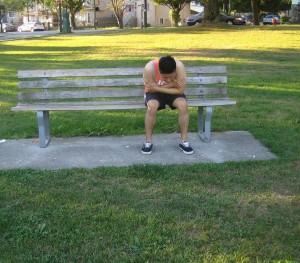Some individuals experience headaches at some point in their lives due to the warm weather. Changes in the temperature and humidity can trigger headaches. Nevertheless, the discomfort might also be an indication of a heat-related illness. It is vital that you are prepared on what to do such as cooling down the individual as well as alleviating the pounding sensation to avoid any serious complications.
Possible causes of headaches
When it comes to primary headaches, they are not triggered by any underlying condition. These occur once the blood vessels and nerves in the head react with the chemical activity in the brain, thus causing the pounding sensation. Types of primary headaches such as tension, cluster and migraines can be instigated by various triggers linked to lifestyle including lack of sleep, alcohol consumption and even heat in some circumstances. Some individuals experience intense headaches during the warm, humid months and the frequency also increases.
Is it heat exhaustion?

A headache is a characteristic symptom of heat exhaustion which is caused by warm temperature, overexertion and high humidity. Along with the headache, there are also other symptoms such as rapid pulse, muscle cramps, fatigue, nausea, vomiting and cool clammy skin.
Remember that dehydration has a major role in this heat-related illness. Once the body is overheated, the individual could not produce enough sweat to cool down the body temperature. If an individual is suspected of heat exhaustion, he/she must be transferred to a shady area and provide him/her with water or sports drink.
Is it heat stroke?
An intense, pounding headache is also an indication of heat stroke. This is the most dangerous heat-related illness which occurs once the body could no longer cool itself. The body temperature can increase up to 106 degrees F or higher in just 10 minutes.
Other symptoms to watch out for include warm and dry skin, rapid strong pulse, nausea and/or vomiting as well as dizziness and/or confusion and the individual might lose consciousness. Take note that this heat-related illness can cause lasting damage and even death.
Management
If an individual experiences a headache while outdoors and the weather is warm, he/she must transfer to an air-conditioned area or a shady place. Allow the individual to lie on his/her back with the legs elevated higher than the level of the heart.
If the individual wears layers of clothing, remove them. Provide him/her with water or sports beverage. Do not provide caffeinated or alcoholic beverages since these will only cause dehydration. If possible, the individual should take a cool shower or soak in a bath tub with cool water. The symptoms must subside in an hour, but seek medical care if they persist.
When to seek help
Headaches that are linked with heat stroke entail immediate medical attention. Other indications of this heat-related illness include hot skin, dizziness, fainting, weakness or muscle cramping, confusion and shallow breathing.
If possible, bring the individual to the nearest emergency department. Once emergency assistance is called, transfer the individual to a shady area while waiting for the medical team to arrive.
When helping out a heat stroke victim, cool the individual as quickly as possible. You can wrap him/her using a wet sheet, assist him/her into a tub of cool water or sponge him/her with water. These cooling techniques can be used until the body temperature drops in between 101-102 degrees F or until the emergency team arrives.
